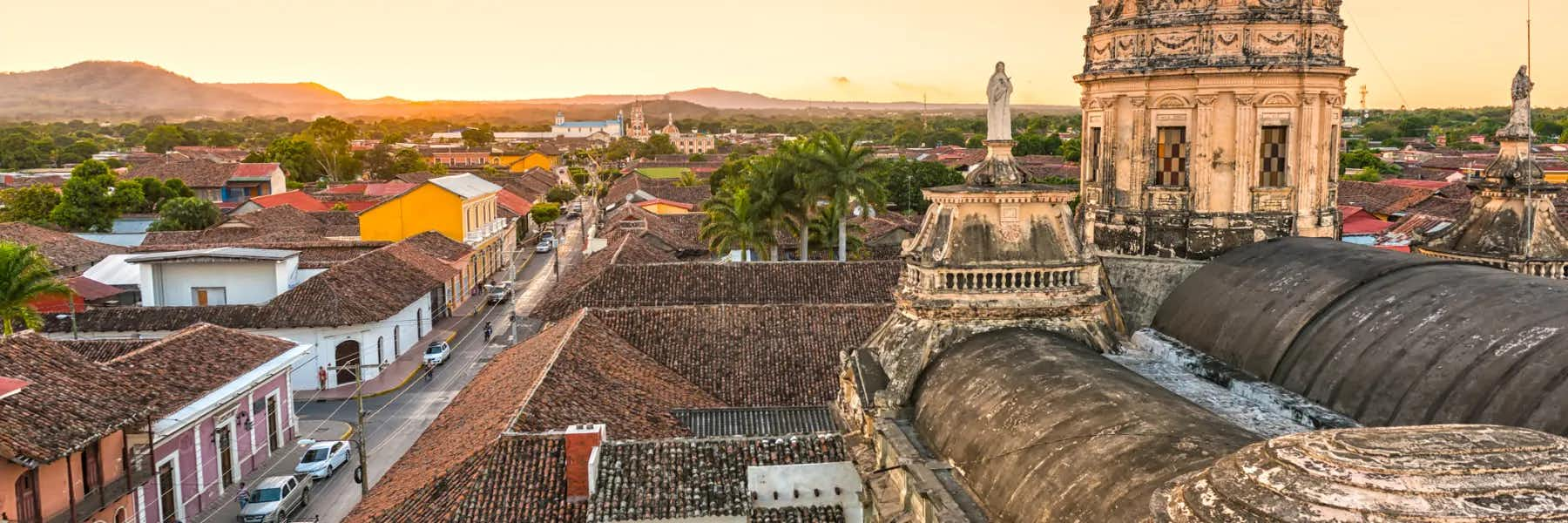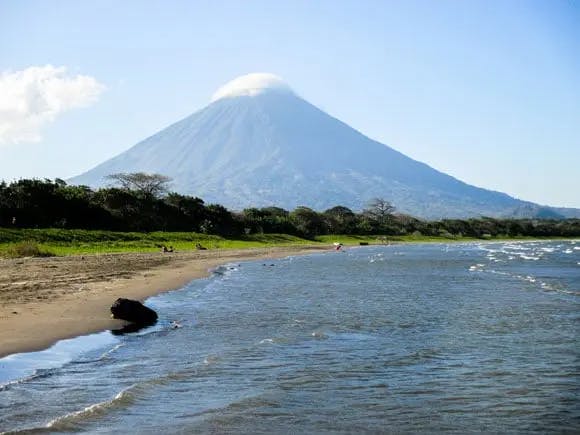Nicaragua has had its ups and downs in the past decade, but the economy started out on a good note in 2016. This small, sparsely populated, and gorgeous country did not take the severe financial hits that developed countries took during the financial crisis. This was largely due to the country’s steady expansion of exports and direct foreign investments. As people in the U.S. and Canada began to see the horror story that might be their retirement in their home countries, many decided to invest and/or move to Nicaragua—a country where your dollar goes far.
Now don’t get me wrong. Nicaragua is still more primitive than its Central American neighbors and is just starting to reinforce the country’s infrastructure, but this bodes well for expats who want to invest in real estate or open a business. In fact, the government has gone out of its way to draft laws to make it simple for foreigners to open businesses—including not paying real estate or sales taxes for up to 10 years if you qualify. Open a tourist business and you might be able to avail of these new laws.
The civil war has been over for 35 years. No one is talking about it anymore. The population and the government want to move forward and they started doing just that a couple of decades ago. Talk now revolves around what new iPhone to buy and what new business to open. Capitalism is alive and well in Nicaragua. This thought process presents many business opportunities for foreigners.
The Economy
The current Nicaraguan population of 6.3 million people has risen by 100,000 each year for the past three years. And the gross domestic product per capita has increased steadily for the past five years, from $1,634 in 2011 to $2,016 in 2015, with a 4.5% increase in 2015 alone, making it one of the strongest economies in Central America.
Even though poverty is declining, it still exists and the government has instituted programs to improve the situation. Most people in Nicaragua do not speak English, since it is only taught in particular private schools.
Nicaragua’s economy continues to improve because of its economic and social stability and recent good management practices by the government. The Gross Domestic Product (GDP) relies on these businesses: agriculture, fishing and forestry; trade, hotels and restaurants; manufacturing; business and personal services, and government services. Tourism is a big new factor as well and the government has just taken note of that.
In 2014, Nicaragua’s exports increased 8%, reaching $5,143 million. The country’s main exports include: textile and apparel (26.7%); automotive harnesses (11.0%); meat (8.7%); coffee (7.7%); gold (7.6%); shrimp (4.3%); sugar cane (4.3%); cigars and tobacco (2.9%); peanuts (2.2%) and cheese (1.9%). The U.S. is Nicaragua’s largest trade partner, and provides 25% of Nicaragua's imports while receiving about 60% of its exports.
Agriculture remains Nicaragua’s top industry, with main products including: bananas, beef, poultry, coffee, tobacco, copper, cotton, gold, maize, rice, silver, sugar cane, soybeans and other beans, and timber. Other major industries include: textiles—knit and woven materials, cement, forestry, beverages, chemicals, food processing, mining and petroleum refining, machinery and metal products, footwear, and wood.
Wages remain low with highly-skilled jobs receiving 13,702 cordobas ($482) per month and low-skilled jobs (the majority of jobs) receiving just 2,609 cordobas ($92.00) per month. Labor costs are so low compared to the U.S. and Canada that this is a big factor when contemplating opening a business or constructing a building.
Tourism
In the past decade, the physical beauty of Nicaragua, along with its great attractions and the fact that it is considered the safest country in Central America, has caused a surge in tourism. Years ago, unprepared for the onslaught of so many new visitors, tourist amenities remained primitive. However, the government has now taken note of this new source of income and is currently setting up an infrastructure, offering more hotels and activities for tourists. Four- and five-star hotels now exist, with many other hostels targeted toward backpackers.
Tourism in Nicaragua is now a major player in the country’s economy, making up about 5% of the GDP. In 2015, approximately 1.4 million tourists visited Nicaragua, generating $450 million that year. In the last 12 years, tourism has actually grown 394% and is now considered the second biggest source of foreign capital. A few years ago, the government had a budget of $400,000 to spend on tourism. This line item is now over $2,000,000 of the country’s budget per year. Indeed, the government sees tourists as a viable industry and expects that tourism could increase as much as 10% per year from this point on. The growth in tourism has also had a positive effect on all other industries as well.
Today we can take a look at Nicaragua’s business ratings and know that all sectors are improving. It is pegged as one of the safest and fastest-growing economies in Latin America. It has been favorably ranked in a variety of independent business evaluations, particularly in the areas of: starting a business, investor protection, and closing a business. Nicaragua has also increased its ranking in: ease of maintaining a business, buying and registering property, paying taxes, ability to import and export, and enforcing contracts.
What This Means for you
If you haven’t considered living in Nicaragua before, you might want to. About 40 years ago some forward-thinking expats decided to invest in Costa Rica. They are now sitting on a nest egg that has multiplied in value at least 10 times since then. Not to mention that those who decided to throw in the U.S. or Canadian towel have been living all these years happily in a stress-free tropical paradise.
Well, consider Nicaragua as being in the same position now that Costa Rica was 40 years ago. Nicaragua is stunning, fresh, sparsely populated, yet ripe for any kind of business or project. The laws are in place to make everything easy for expats to live here, even allowing you to own beachfront/ocean view property outright. There is no lease requirement; you can will the property to your kids and it’s theirs outright as well.
While the U.S. and Canadian economies still suffer, Nicaragua appears as a bright diamond with its great economy, beautiful physical attributes, and laws that make living here a breeze.















